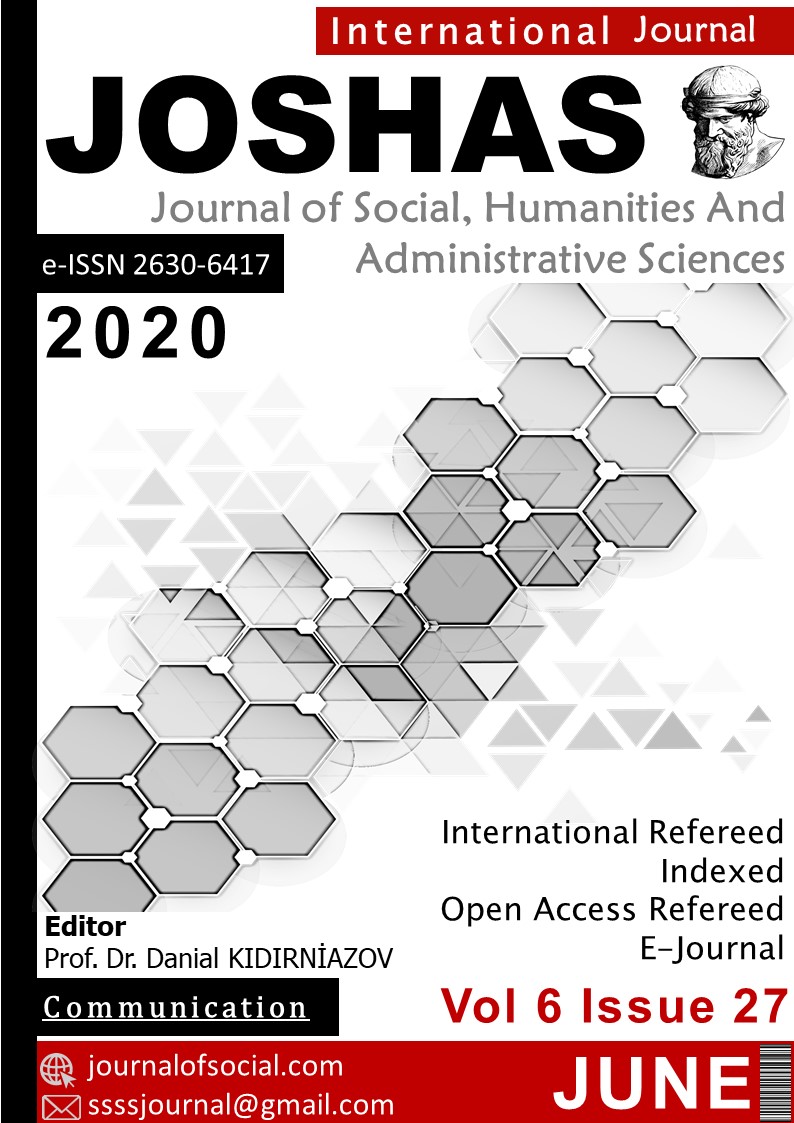Author :
Abstract
Küresel rekabette ülkeleri birbirine karşı üstün kılan güç, inovatif olabilmeleridir. Endüstri 4.0 ile birlikte günümüzde sanayi politikaları inovasyona dayalı olarak oluşturulmaktadır. Ülkelerin ekonomide ticari yönden dışa açıklık düzeyi bilgi ve teknolojiyi öğrenme, geliştirme ve nihayetinde inovasyon kapasitelerini geliştirebilmelerine katkı sağlamaları açısından gelişmekte olan ülkeler açısından oldukça önemlidir. Bu çalışmanın amacı, gelişmekte olan ülke grubu BRICS-T için başlıca dış ticaret göstergelerinin inovasyona olan etkisini 2007-2019 dönemi için panel eşbütünleşme analizi yardımıyla belirlemektir. Dış ticaretle ilgili olarak “ihracat”, “ithalat” ve “yabancı doğrudan yatırımlar”, inovasyonun göstergesi olarak “küresel inovasyon indeksi” alınmıştır. Eşbütünleşme analizi sonucunda, değişkenlerin uzun dönemde ilişkili oldukları ve ihracatın inovasyonu olumlu, ithalat ile yabancı doğrudan yatırımların ise inovasyonu olumsuz yönde etkilediği belirlenmiştir. Nedensellik analizi sonucunda, ihracat ve inovasyon arasında çift yönlü bir nedensellik ilişkisi, doğrudan yabancı yatırım ve ithalat ile tek yönlü bir nedensellik elde edilmiştir.
Keywords
Abstract
The power that makes countries superior to each other in global competition is their ability to be innovative. With Industry 4.0, today's industrial policies are being established on an innovation basis. The degree of countries' trade openness in the economy is very important for developing countries in terms of learning and developing information and technology and ultimately contributing to the improvement of their innovation capacities. This study aims to determine the effects of the main foreign trade indicators on innovation with respect to the developing countries group BRICS-T through panel cointegration analysis for the period 2007-2019. In terms of foreign trade, "export", "import", and "foreign direct investment" have been taken into account, and the "global innovation index" has been taken into consideration as the indicator of innovation. As a result of the cointegration analysis, it has been determined that the variables are related in the long run, exports have a positive effect on innovation, whereas imports and foreign direct investments adversely affect innovation. As a result of causality analysis, a two-way causality relationship has been found between export and innovation while a one-way causality has been detected with direct foreign investment and import.
